Key Research Interests
I am interested in researching the underlying mechanistic process that determine how marine mammals work. This is the center of my work.
Studying the interaction of organisms with each other and their physical environment is also one of my research interest. I explore ecology under the premise of animal physiology (intrinsic factors that would allow them-or not-to cope with their environment where they live).
The physiological mechanisms that lead marine mammals to cope with their environment often entail behavioral changes. I’m also very interested in both qualitatively and quantitatively study the behavior associated to marine mammals ecophysiology.
Publications
In this section you can check a brief summary of my publications. If you want to dig deeper, I provide links where you can download them. Questions? feel free to contact me!!
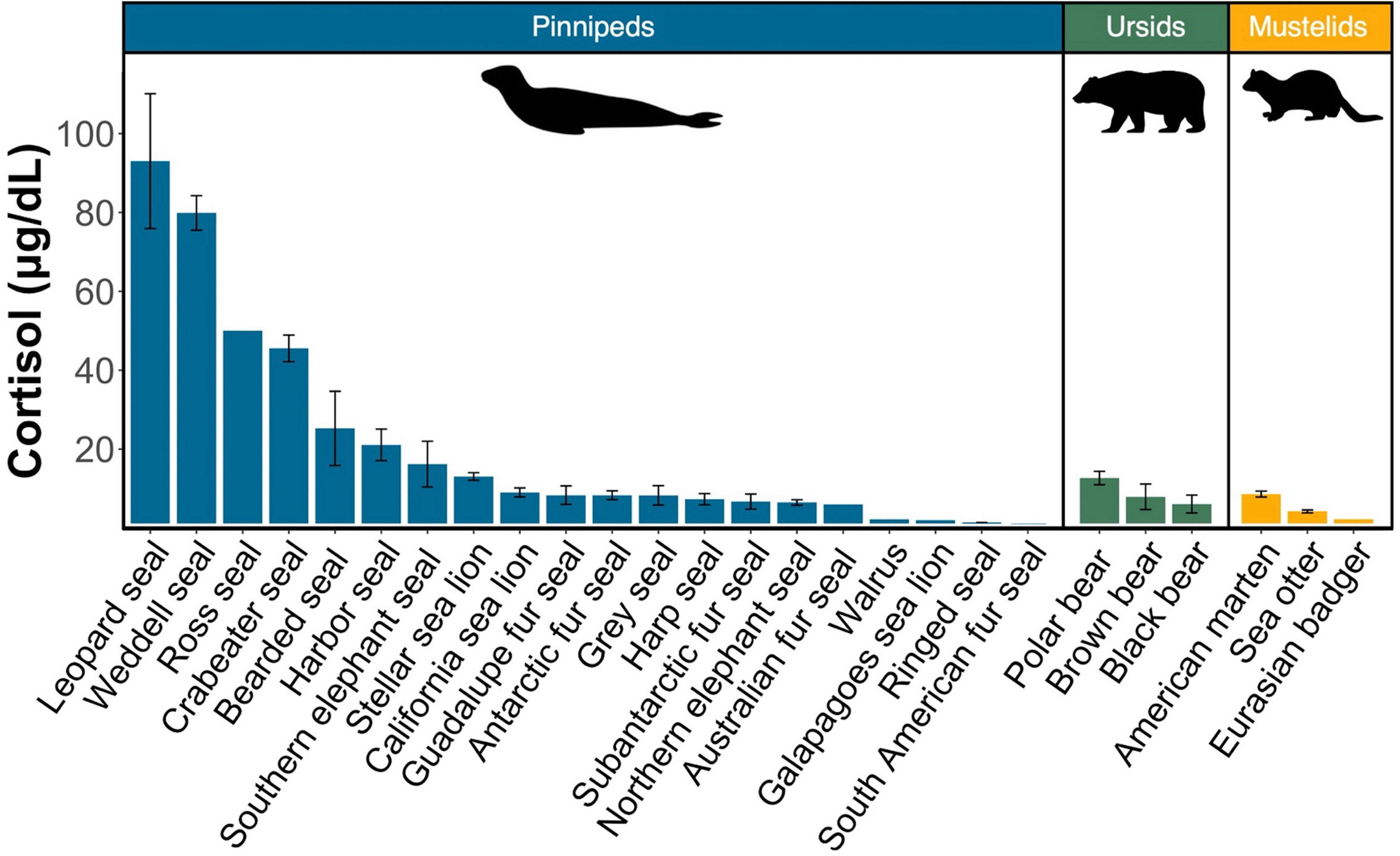
Large and in charge: cortisol levels vary with sex, diet, and body mass in an Antarctic predator, the leopard seal (2023)
I measured cortisol in leopard seals and examined intraspecific variation. Leopard seals show the highest circulating cortisol concentration ever reported for pinnipeds and also, the highest across 26 closely related Arctoid taxa. Cortisol varied by sex, body mass, and diet.
Full Publication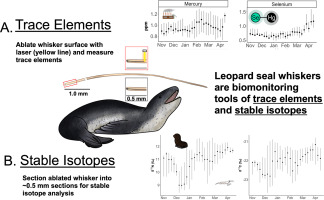
Whiskers provide time-series of toxic and essential trace elements, Se:Hg molar ratios, and stable isotope values of an apex Antarctic predator, the leopard seal (2023)
Led by Patrick Charapata, we found that leopard seal whiskers are an incredible tool for trace element biomonitoring. Hg, Pb, Cd and Se changed over time in relation to ẟ15N and ẟ13C values. We document higher Hg burden compared to previous studies and the Se:Hg molar ratios suggest leopard seals use Se to offset Hg Burden. How cool is that!
Full PublicationUse of Blood Lactate in Assessment of Manual Capture Techniques of Zoo-Housed Crocodilians (2022)
Yes, not just marine mammals; crocodiles too! Led by Holly Grace Molinaro we aimed to clarify the relationship between manual capture techniques, blood lactate levels, and other varying factors in order to minimize physiological stress during manual capture and restraint events of zoo-housed crocodilians. We collected 53 blood samples of ten crocodilian species and analyzed for lactate. Measurements were related to specific behavioral and extrinsic factors. Blood lactate could be use as a new welfare marker for crocodilians in zoos.
Full Publication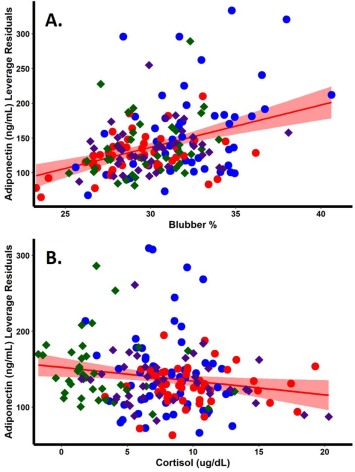
Changes in serum adipokines during natural extended fasts in female northern elephant seals (2021)
Endotherms rely on adipose tissue to thermoregulate, store fat, and as an endocrine organ. In N. Elephant seals and led by Caroline L. Rzucidlo, we found that adipokines (cell-signaling molecules produce by adipose tissue that play important energy/metabolic role) change within fasting periods. Circulating adipokines are associated with body composition, cortisol and IL-6. they are also related to glucose metabolism and insulin sensitivity in seals. I love Elies :)
Full Publication Get your popcorns…Coming up soon! (accepted and in review)
Get your popcorns…Coming up soon! (accepted and in review)
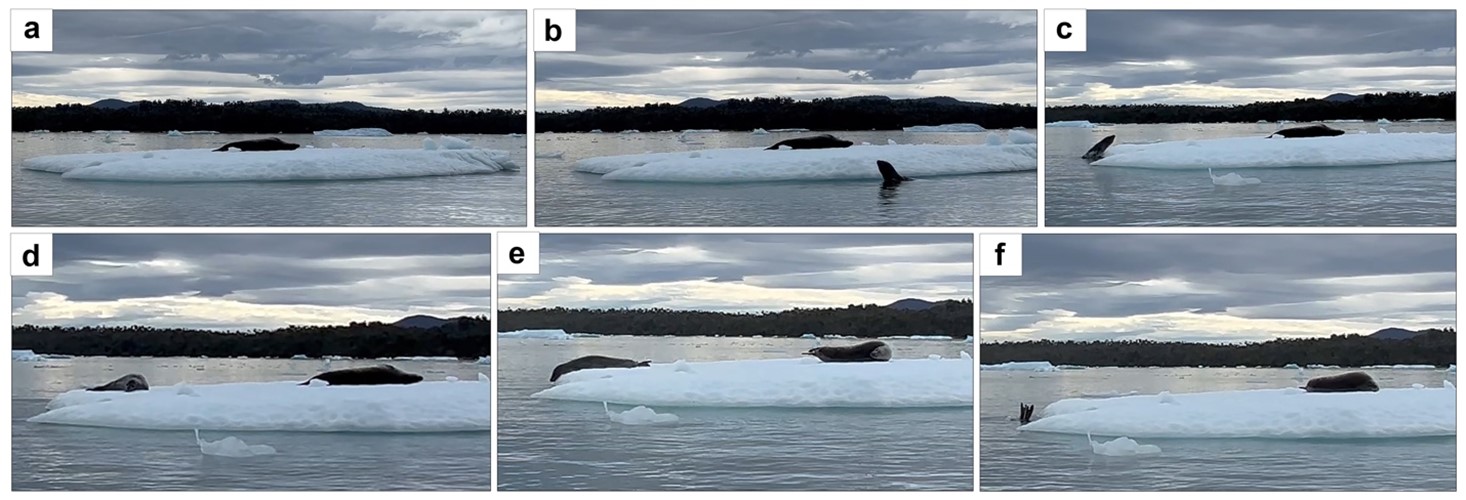
First paired observations of sexual behavior and calls in wild leopard seals (ACCEPTED!)
Led by Sarah Kienle, we opportunistically observed and report the first sexual interaction of leopard seals in the wild and outside Antarctica! An example of the importance of observing nature when doing sciences.
Coming soon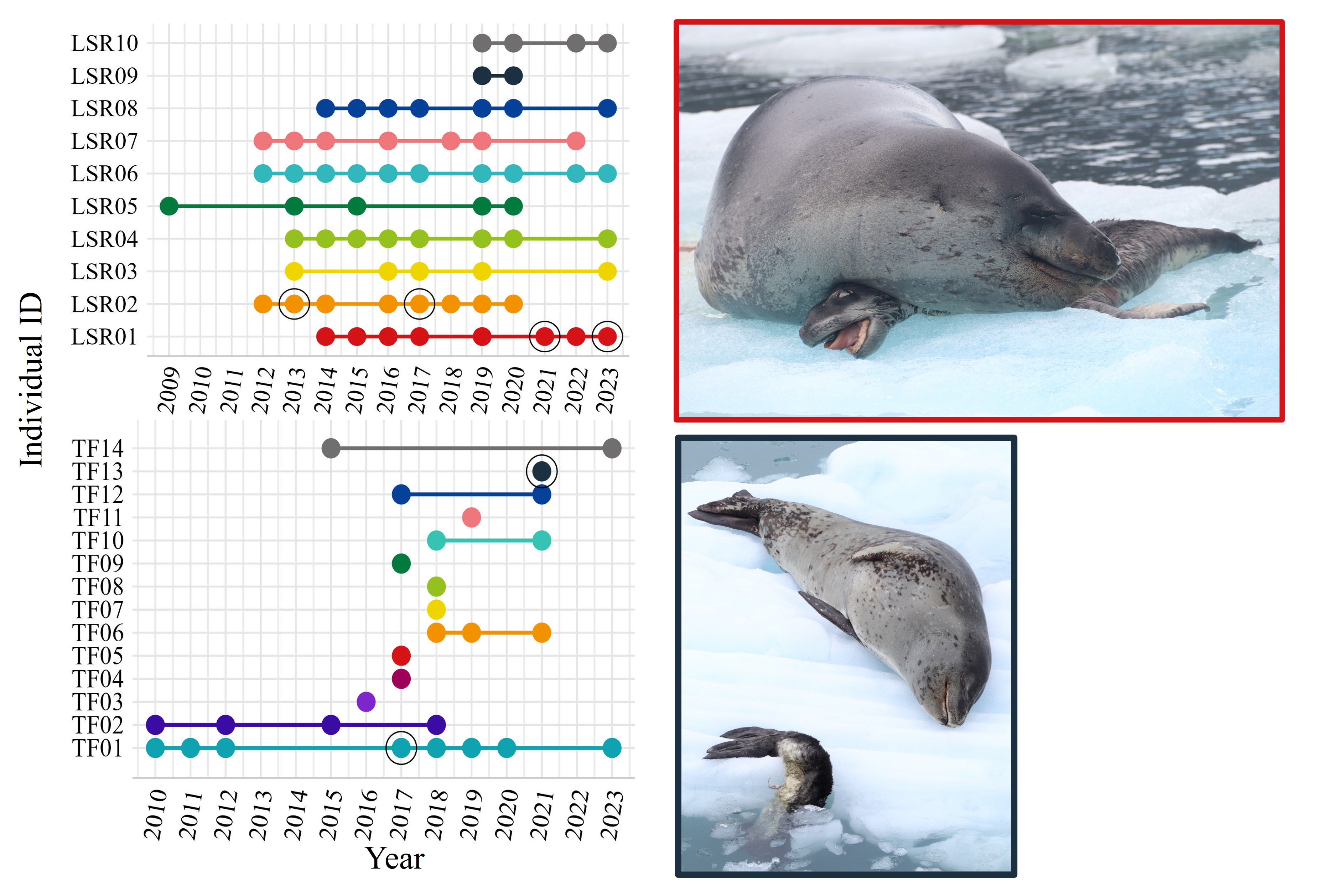
Occurrence, residency, and habitat characterization of leopard seals in Chile (in Review)
Led by Renato Borras-Chavez, we present evidence that leopard seals have been living in Chile for centuries following multiyear resident leps, with numbers of leps increasing and several birth records for the region. Patagonia should be incorporated as part of the species breeding distribution.
Coming soonAwards
2024
Graduate Woman in Science National Fellowship (GWS)
2022-2023
Certificate of Excellence in Research, Baylor University
2019
Honorable Mention, NSF Graduate Research Fellowship Program
2017
Magna Cum Laude (B.S.), Sonoma State University
2014-2017
Sonoma State University Dean’s List
2014-2017
Sonoma State University Presidential Scholar
For information on the grants I have obtained so far, you can download my complete CV “here” or “contact me”.